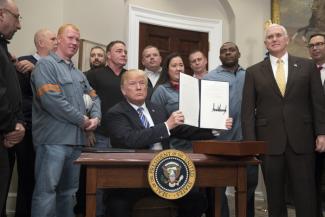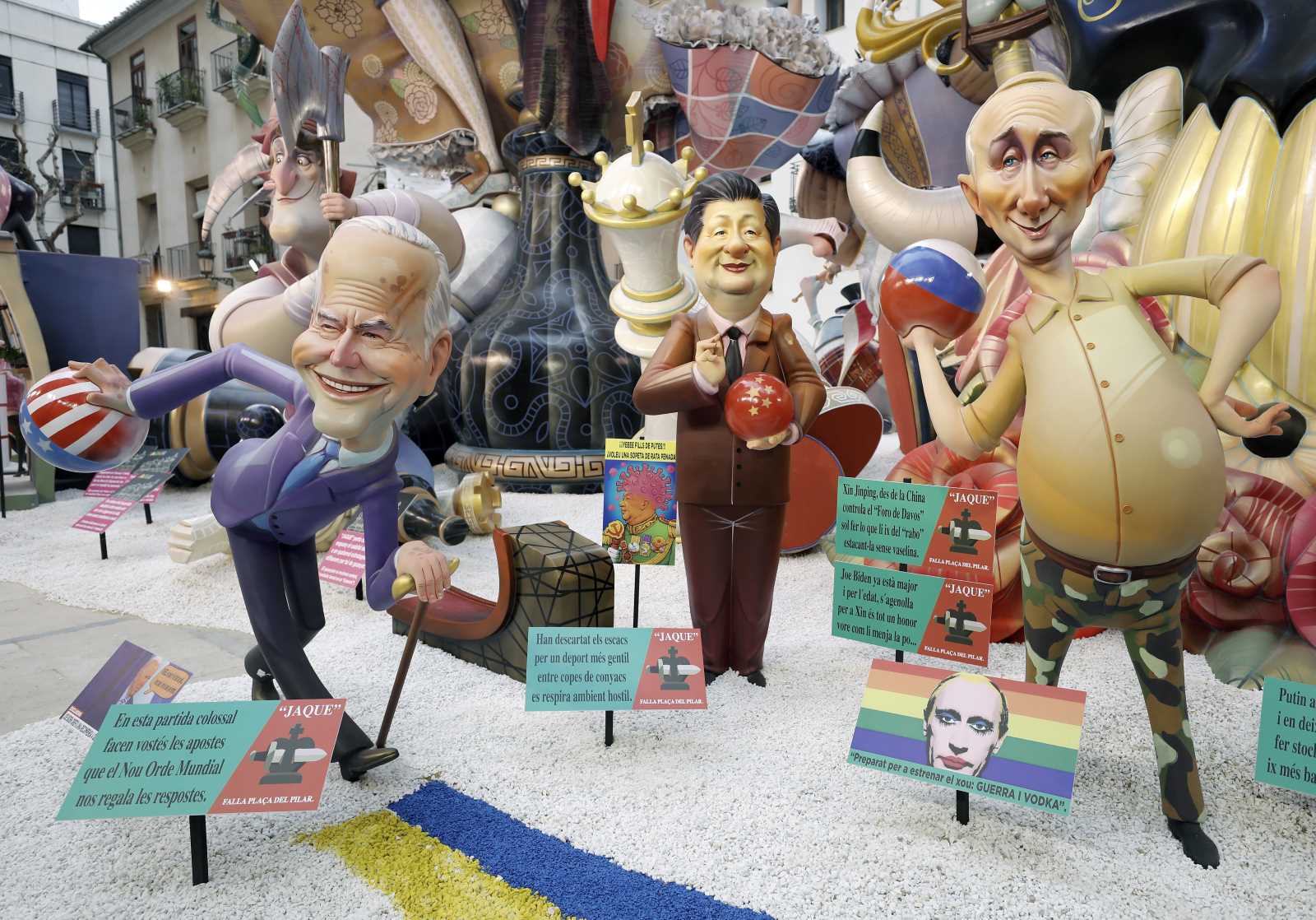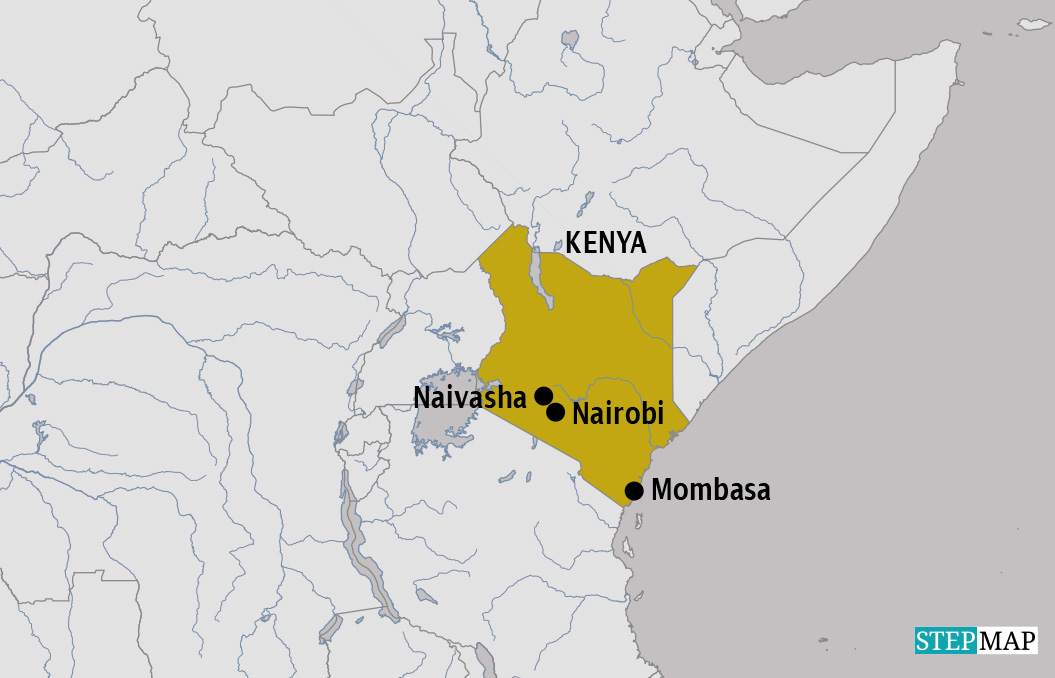World trade
Trump bullies and blackmails

The rates are 25 % for steel and 10 % for aluminium. When this comment was finalised before the Easter break, Canada, Mexico, the EU and other close allies of the USA were exempt for one month. Others – prominently including Japan – could apply for exemptions too. Whether those exemptions would become permanent depended on further negotiations.
The White House also announced plans for another series of tariffs. They would affect high-tech imports from China and could amount to $ 60 billion. Trump argues that China’s trade practices, regarding intellectual property, for example, are unfair. The US will also restrict Chinese investments in the USA and appeal to the World Trade Organization (WTO). The last point is in line with EU demands. Indeed, other WTO members share grievances concerning China, and the right way to proceed is to rely on the WTO mechanisms, especially its dispute-settlement system. To what extent the White House is serious about going to the WTO remains to be seen. Trump’s rhetoric clearly suggests he prefers unilateral action.
His tariffs can result in a destructive trade war to the detriment of all nations. If affected countries do not respond decisively, Trump will feel encouraged to further bullying and blackmailing. Retaliation, however, may tempt Trump to impose yet more tariffs. China has announced counter-measures to the metal tariffs and indicates it will respond to further tariffs in kind.
Such tit-for-tat action can escalate into full-blown protectionism everywhere. That would disrupt the cross-border supply chains that companies all over the world depend on.
Flimsy pretext
Trump claims that his steel and aluminium tariffs serve national security. The reason is that the WTO rules give member countries scope for protective action if national security is at stake. However, Trump’s stance is hardly credible. After all, he wants to use the tariffs as bargaining chips in trade negotiations. There is no sign of defence industries in the USA currently lacking metal.
If the USA needs its own steel and aluminium industry, it does not make sense to exempt allies even temporarily. If, however, US-based arms manufacturers can rely on supplies from close allies, they should be exempt permanently. If they serve to put pressure on partners in trade talks, they are unacceptable. Most likely, Trump wants to please his base and detract from his scandals (Russia, porn-star, self-enrichment et cetera).
No one should accept the flimsy pretext of “national security”. Other WTO members must insist on rules applying to every member. As this is quite evidently a trade issue, the WTO should deal with it accordingly. US allies would not be wise to strike separate bargains with the White House to get permanent exemptions. This is a matter of principle. If they cave in now, more intimidation and extortion will follow. It is telling that Japan did not get temporary relief from the tariffs. Ever since Trump won the election, Japan’s Prime Minister Shinzo Abe has done his best to flatter him. The US president surely considers him to be weak.
Adding to the problems, the White House has been blocking the appointment of new arbitrators who would replace those who retire. Without a sufficient number of arbitrators, decisions will become impossible in a few months. The implication is that retaliatory action would no longer be legitimised by the WTO's decisions, and trade disputes would become even more difficult to resolve. Global trade would be heading for a chaotic free-for-all.
A new conflict may arise if the US administration considers the three-percent sales tax that the EU plans to raise from online businesses as a trade issue. It is true that they would hurt the so called FAANGs (the likes of Facebook, Amazon, Apple, Netflix and Google), which are based in the USA (also note our recent interview with ADB economists). However, such tariffs would not distort trade since they would apply to all internet businesses of a certain size.
The international community must not let this kind of dispute spin out of control. EU leaders have done well to declare that they will not make special concessions to keep the temporary relief from the steel and aluminium tariffs and to insist that all parties must use WTO mechanisms to resolve the tensions. That, however, will only be possible if the dispute settlement panels are staffed properly. This is a topic the EU will have to raise in talks with Washington.
Regional agreements
To some extent, regional trade agreements and meta-agreements between them may contribute to limiting the damage. It is promising that the Trans-Pacific Partnership has now been concluded even though Trump withdrew last year. The TPP partners want a rules-based system. Apparently they want other to join the TPP. That is easier said than done, however, because trade agreements are very hard to negotiate. They affect many interests in many sectors and very many places. That said, it is good that AU plans for a continental free trade area are making progress too.
Trump is not known for responsible diplomacy. He excels in bragging, bullying, lying – and frequently changing his stance. His recent appointment of John Bolton as national security adviser fits the pattern. Bolton is a hawkish right-winger and, serving as UN ambassador, was one of the hard-line supporters of George W. Bush’s Iraq war.
Bolton has spoken out in favour of military US action against both North Korea and Iran, which may please Trump. On the other hand, he is a super-hawk in regard to Russia too – unlike the president. To some extent, Bolton’s appointment may be sabre-rattling. Since Russia and Iran are close allies, it hardly makes sense to keep appeasing the former while preparing to go to war with the other. So far, there is no indication at all that Trump has managed to divide Russia from Iran. On the contrary, US-Russian relations have not been as hostile as they are now for a long time. A coherent strategy is not discernible.
The international community needs a reliable world order defined by rules. It must not surrender to an erratic US president. WTO members should unite in a coordinated effort to protect the WTO and its mechanisms. More generally speaking, all multilateral institutions deserve to be defended against disruptive White House action.
Hans Dembowski is the editor-in-chief of D+C/E+Z.
euz.editor@fazit-communication.de














